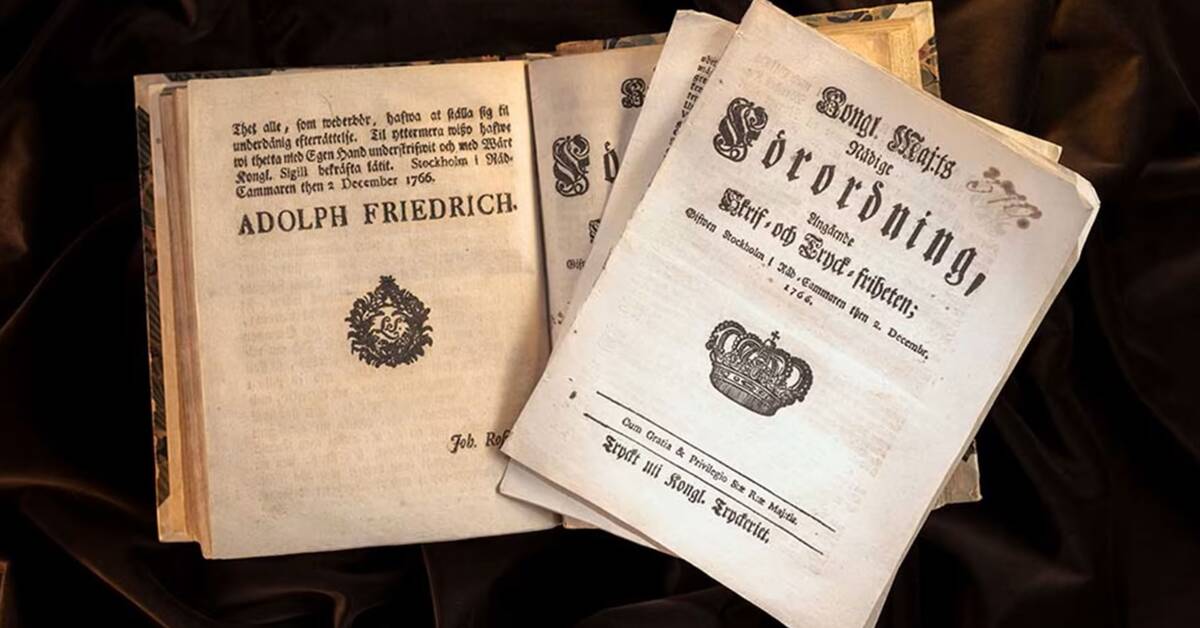A world memory is a document or collection in an archive or library that is considered to have great value for humanity, the government writes. Sweden already has seven world memories.
"It was groundbreaking because we were alone in this," says Anna Karin Hermodsson, deputy national antiquarian on the Freedom of the Press Act from 1766.
Everything is allowed
When the first Swedish Freedom of the Press Act was adopted, it consisted of two parts, writes the National Library of Sweden:
The right of everyone to publish thoughts, opinions and feelings in print.
The right for everyone to access the documents of the authorities and governing bodies (e.g. decisions, minutes and investigations), and print them if they wished. This right is called the principle of public access to official records.
"Everything is allowed except what is forbidden – there is a certain amount of secrecy, and we still have that today," says Anna Karin Hermodsson.
Constant threats
The source material is preserved at the National Archives and the National Library of Sweden, and it is these documents that are now given world memory status.
Johan Taubert is CEO of Tidningsutgivarna and sees some problems with today's Freedom of the Press Act.
"There are several ongoing threats. There will be new legislation with good intentions, but the knock-on effect will be that freedom of the press will be restricted," he says.
See the legal text from 1766 and interviews with Anna Karin Hermodsson and Johan Taubert in the clip.

